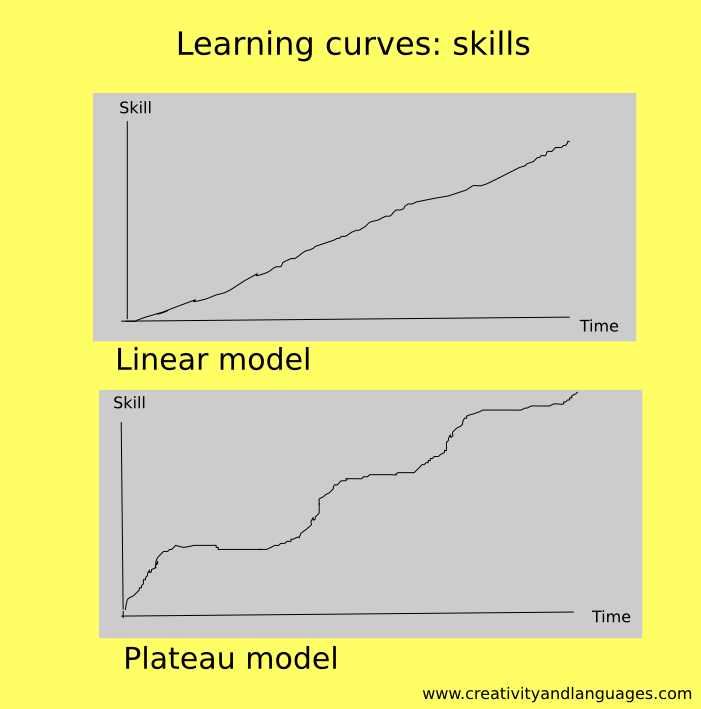“It is few months that I don’t make any progress, I have reached a plateau”.
This is a classic sentence from a language learner, who is losing motivation to learn since he doesn’t see any progress.

The linear model of learning
One of the biggest assumptions made by people that are learning a new practical skill (elsewhere I wrote about the difference between practical skills and theoretical knowledge) is that our ability should grow linear with the time and effort that we are putting in to learn the target skill, which in our case is learning a language. This is what I will call here “the linear model of learning”.
The unlinear or plateau model of learning
Another model of learning, one that I became aware of by reading Vera Birkenbihl books, is a model that takes into account plateaus. According to this model when we are learning a new practical skill there are stages during which we learn linearly and others during which, even if we are practicing the skill and putting efforts to learn it, we seem stuck at the same level with no discernible progress. It has been said that the plateaus are somehow physiological as the brain (or other body parts) has to build new structures, networks, and connections. Basically infrastructures are needed before growth can continue.
If the linear model corresponds to reality than if people are not making progress it means that something has gone wrong, bad methods? bad memory? And so on.
If the plateau model is the right one then this means that we have to learn to appreciate also the stages of learning where we don’t see any apparent improvement because we know that it is part of the process. Giving up at this point would be very costly. Someone said – probably V. Birkenbihl – that “we have to learn to love the plateau”.